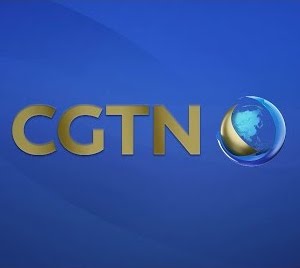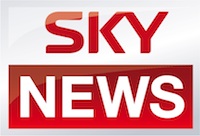The sages of Dearborn
 one about Ron Paul's speech and the opportunity I had to meet him and talk with him at some length, and another about overall impressions and the other candidates, plus my appearance as a panelist discussing blogging and its impact on politics.
one about Ron Paul's speech and the opportunity I had to meet him and talk with him at some length, and another about overall impressions and the other candidates, plus my appearance as a panelist discussing blogging and its impact on politics.But for now, let me report on the highlight of yesterday's portion - a panel on the 2008 Presidential race featuring 3 very experienced and respected pros in the business:
- John Zogby, brother of AAI founder Jim Zogby and a legendary pollster
- Peter Fenn, Democratic strategist with hundreds of campaigns under his belt, including Gore and Kerry
- Ed Rollins, a Republican who ran Reagan's re-election campaign and is responsible for Christie Whitman's win in NJ in 1993 (continued...)
Zogby began with an overview of the current mood of the country, which he identified as about 2/3 of people feeling that we were in a serious crisis, and about equivalent numbers saying the county is on the wrong track.
Unlike 2004's Presidential race, in which very few people were undecided even early on, this election will return to being decided at the political middle, Zogby said.
Then came something interesting: Hurricane Katrina, Zogby suggested, would be as defining a moment as September 11. It is the other side of the 911 coin; whereas, 911 strengthened Americans' faith in government institutions, the disastrous response to Katrina decimated the public's confidence in them. Thus, Zogby says, we could see a "1932 moment" in the 2008 election - a rejection of federalism and centralized government.
On a practical level, however, Zogby says that the Democrats have a slight advantage - namely that they are not Republicans. Bush is a political disaster. His approval rating is higher only than Nixon before he resigned and Truman when he fired Douglas MacArthur. On the other hand, Congress is doing even worse - they are at 11% approval. The Democrats took over and they did not deliver on Iraq, plain and simple, Zogby says. On that note, he postulates that Iraq may not be big issue a year from now, and Republicans could end up running as the "peace party".
But he outlined the staggering growth in the numbers of Hispanic voters, which will be 10.5 to 11% of 145 million voters in 2008, the largest ever. Bush gained in his share of the Hispanic vote between 2000 and 2004, yet in 2006, the Republicans got only 28%. Why? Zogby says, being anti-illegal immigration has been translated as being anti-Hispanic.
He closed with a staggering data point. Next year, a voter will have to be 46 years of age to have ever cast a presidential vote in which a Bush or a Clinton was not on the ballot!
Next came Peter Fenn, who began with a hilarious litany of his bad predictions over the years. He was quite entertaining. Thus, he said, you'd have to had your head examined if you believed you could predict what will happen in 2008.
With that, he launched his analysis by stating that more people believe in ghosts than believe in Iraq succeeding. Thus, 2008 will be won by the "2 Cs": change and confidence. He identified "frontrunneritis", and said that those looking strong right now could easily tumble - there is a domino effect in early states. Fenn spoke of the Democrat field as being comprised of "6 giants" (an exception made for the 135lb Dennis Kucinich) , not the "7 dwarfs" of 1988.
Edwards has got to win Iowa, Fenn bluntly stated. Ditto for Biden and Dodd, it's do or die in Iowa for them. Hillary, he interestingly pointed out, is hampered by her large entourage of secret service, etc. and can't do the 1-on-1 campaigning that Iowan Caucus participants have come to expect.
As for the Republicans, well, he was quite biased and partisan, but all in good fun I suppose. He identified the Republican base sentiment as "none of the above" and called the so-called frontrunners the "3 stooges".
Rudy Giuliani peaked the day he announced, while Mitt Romney is running a brilliant campaign - when he walks into a room, Fenn joked, women go "woah!!!" while men go "damn!!!". Romney will become the candidate of the middle, Fenn suggested - while he is going right now and his flops are "ridiculous", he will go left once he gets the nomination.
Fenn concluded by stating that in this election, the candidates cannot run AGAINST the other - that won't work. People want to vote FOR a candidate, and if that doesn't look likely than third parties could play a major role and we could see something unprecedented happen. "If you thought 1992 was weird..."
Finally, we heard from Ed Rollins. He started by identifying Bush's shortcomings and said that we can't have another failed presidency. There are no young "Bush Republicans" like the many that Ronald Reagan brought along.
As for 2008, he agreed with Fenn that this could be an election unlike any other. He identified a geographical divide in addition to an ideological one in that the GOP is now a "southern party". He too said that Romney was waging a "brilliant campaign" and that Giuliani's frontrunner status is based on his name ID, but that other things will come to light - his campaign may survive them and it may not survive. However, he said that all the Republicans know who Rudy is, but only 30% seem willing to support him.
Rollins then went to Fred Thompson, saying that he had low expectations going in, and he hasn't even met them yet. He identified himself as a Law & Order fan, and noted the similarity between Thompson's debate lines and the closing scenes of each episode, but then added, "No one is writing the script to get Fred Thompson to those end lines."
He also predicted that like the previous 2 elections this will be an extremely close race and that the early primaries might end up producing 2 candidates that the public is not thrilled about because the front-loaded season has not given people enough time to get to know them. In that case, Rollins suggested, someone like Mike Bloomberg could get in.
Two other points on Rollins: he identified Dick Cheney as a friend, but when pressed on that in the questioning, he qualified it by saying, "the man that is Vice President I don't really know anymore," echoing other Cheney old-time pals like Brent Scowcroft.
None of the 3 talked about Ron Paul. I pressed Rollins on this afterward, and he said that Ron Paul is adding tremendous value and he was pleased to see that as a Republican, but that the support he could ever get from the GOP base would top out. I conceded that point, but countered that the open primary states render it meaningless. He reiterated that anything can happen in this cycle.
All in all, an outstanding discussion from 3 experts that was one of the highlights of the conference.
















